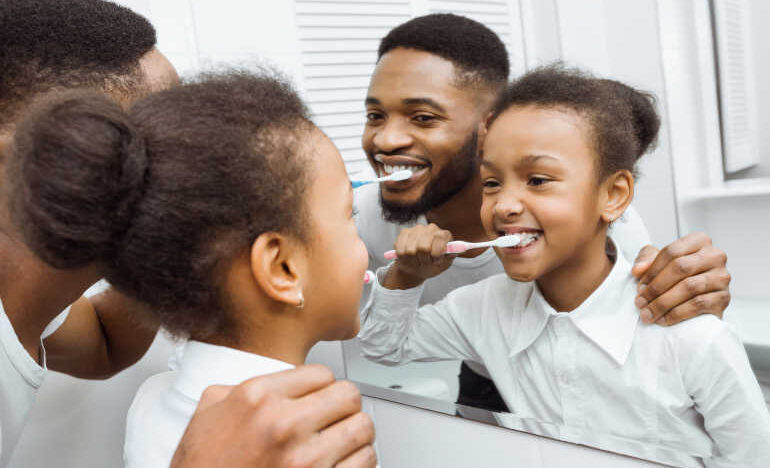Family Matters #19: How to teach your child about responsibility

By Lucia Ferrara
Healthy, strong relationships in families are the foundation to help kids to grow and learn, but great family relationships do not just happen. You must work at them.
According to The Keep Connected Institution, “These relationships build strong social and emotional strengths that kids use through their lives.”
We begin teaching our children responsibility at an incredibly young age. For example, when your child was maybe as young as one or two years old, you are teaching them to put their toys in the hamper. As your child grows, we take time to teach personal responsibility and acceptance for their actions, no matter how big or small they are.
All the articles in the Family Matters series are available here.
As a parent, we need to ask ourselves is, what is responsibility and how do we teach our children about it? Responsibility means you do things you are supposed to do and accept the outcomes of your actions.
For example, we want our kids to brush their teeth every day, maybe even twice a day. Instilling the brush-your-teeth ritual in your child’s daily routine builds responsibility as well as develops healthy habits.
Another example is when you go to recess or to a park, you are expected to play in such a way that you do not hurt anyone or yourself on accident, so you teach your child to be responsible and have fun in a safe manner.
Chores is one way to help your child learn responsibility. What type of chores are expected in your family? In my family, the kids each have a chore that needs to be done around the house.
For example, when all three were at home, my daughter was responsible for feeding the dog and cat every day. My oldest son was responsible taking out the trash when it got full, which for us was almost daily. My youngest son was responsible for unloading the dishwasher and putting dishes away after dinner.
These and other chores were rotated among them from time to time, so the way each child knew what the other had to do and it was a lesson to learn.
Never miss an article published on the Renewal Center website: Sign up to receive our newsletters
We want our families to be responsible in all we do. Some lessons include teaching youth about common expectations, which include: Keeping one’s word, being accountable for ones’ behavior, being dependable, being a contributing member of one’s community, sports team, school, and society in general.
I personally believe that learning to be responsible is the key my children’s success in school and in the world. We need to encourage our youth to do their best, even if their best is not up to our expectations.
Allowing your children to earn a sense of pride and accomplishment in whatever they do helps build their confidence and grow into great responsibility.
I leave you with a few reflections to discuss with your family and friends.
- If your daily routine includes chores, make a chore chart in a designated place where everyone can see it.
- Discuss together how to structure and roles are a part of fulfilling responsibility. Setting boundaries, expectations and limits.
- Communicate unconditional love and support. This allows your children to make mistakes, take risks knowing that parents have their backs!
Photo Credit: Photo 138348996 © Milkos | Dreamstime.com
[Lucia Ferrara is the Director of Hospitality at Precious Blood Renewal Center and the lead organizer here of Parent Cafes. Share your thoughts with Lucia or ask her questions by using the form below or sending an email to info@pbrenewalcenter.org. Read more about the Parent Café here.]
We’d Like to Hear From You!
We’d like to know what you think about this article. Send us a comment using the form below. Do you have a suggestion? Is there something you want to learn more about? Send us a note.
Related

Pilgrims of Hope, Episode 6: Walking with Cancer Survivors
Hosted by Fr. Ron Will, C.PP.S.
We are talking with people who find hope amid difficult circumstances or bring hope to others. In this episode, Kathy Keary talks about how centering prayer, journaling and other spiritual practices helped her cope with two life threatening health issues.

The Rollercoaster Torture
An Assembling God’s Puzzle video
By Fr. Garry Richmeier, C.PP.S.
Life is full of ups and downs, like a roller coaster, and that fact is a piece of life’s puzzle that we must deal with. Depending on how we deal with it, it can be torture, or it can be simply another difficult aspect of life to be navigated. How do we avoid the torture?
Categories
Assembling God's Puzzle Coffee with Padre Cooking & Spirituality Encounters of the 4th Kind Family Matters Reflections on the Eucharsitic Prayers Spiritual Resources Taize Prayers The Contemplative Life Traveling with Pilgrims of Hope Uncategorized Videos Week of Prayer for Uhristian Unity When you need a little help
